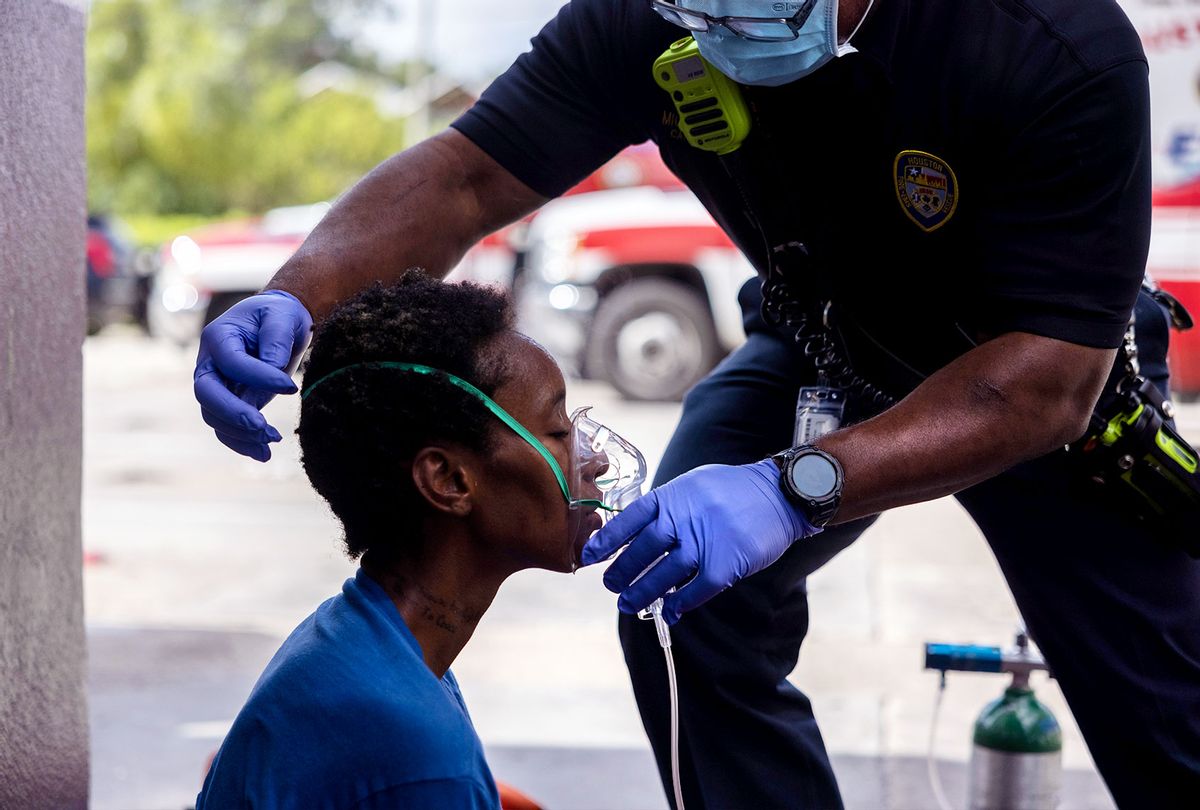Studies have consistently shown that while being vaccinated against COVID-19 doesn't always prevent breakthrough cases, those that do contract COVID-19 will be far less likely to have serious symptoms.
Still, breakthrough cases — even serious ones — do occasionally occur among the vaccinated. One open question for the fully vaccinated is whether such infections can still have long-term side effects. Colloquially known as "long Covid" by its sufferers, many COVID-19 patients have reported ongoing side effects from COVID-19 months or even years after clearing an infection.
Until recently, the degree to which breakthrough cases can cause long Covid was unknown, largely due to a lack of studies on the topic. Now, a new study published in The Lancet Infectious Diseases journal found that fully vaccinated people are about 50 percent less likely to experience long Covid than unvaccinated people.
It is the most substantial study to date to indicate that at immunization significantly decreases the risk of long Covid.
"We found that the odds of having symptoms for 28 days or more after post-vaccination infection were approximately halved by having two vaccine doses," researchers wrote. "This result suggests that the risk of long Covid is reduced in individuals who have received double vaccination, when additionally considering the already documented reduced risk of infection overall."
Long Covid, which is a patient-coined term, describes symptoms from a COVID-19 infection that last for more than one month. Previously, in studies of unvaccinated individuals, long Covid patients reported symptoms that included (but are not limited to) fatigue, brain fog, confusion, shortness of breath, headaches and chest pain. In some cases, it is nearly impossible for people with long Covid to resume their regular daily activities.
Notably, not everyone who gets long Covid had a severe infection or was hospitalized after their COVID-19 diagnosis. Some eventually experience full recoveries, while others do not. Up to 10 percent of those who contract COVID-19 have long Covid after the virus has cleared their body, according to University of Alabama researchers. But until now, little was known about long Covid and the fully vaccinated.
The study based its findings on data from more than 1.2 million people participating in the Covid Symptom Study. Volunteers of the study use a mobile app to log their symptoms, test results and vaccination records. The study looked at participants who received at least one dose of the Pfizer, Moderna or AstraZeneca vaccines between Dec. 8, 2020, and July 4, 2021, in addition to a control group of unvaccinated people. Of the nearly 1 million people who were fully vaccinated, 0.2 percent reported a breakthrough infection. Notably, those who did get a breakthrough infection were twice as likely to be asymptomatic, and the odds of being hospitalized were 73 percent lower than the unvaccinated control group.
The researchers also found that the likelihood of having symptoms that persisted beyond one month were 49 percent lower in the breakthrough infection group.
The study does have one big limitation, as the researchers noted: all the data is self-reported.
Notably, a previous study of Israeli healthcare workers published in the New England Journal of Medicine attempted to quantify the potential risk of long Covid after an infection despite vaccination and landed on a similar conclusion. Thirty-nine people out of 1,497 fully-vaccinated healthcare workers got COVID-19. While most of the cases were mild or asymptomatic, 7 (or 19 percent) had persistent symptoms of prolonged loss of smell, persistent cough, fatigue, weakness, muscle pain, or labored breathing that lasted for more than a month. Notably, this study took place before the delta variant caused a surge in breakthrough infections in Israel.
he new study out of the United Kingdom includes a stretch of time when the delta variant was part of the story, but it does not distinguish the risk of long Covid by variant.
As Salon reported last month, scientists suspected long Covid is biologically possible with breakthrough infections. Specifically, in breakthrough infections caused by the delta variant, high levels of viral genetic material appear in the upper respiratory tract. According to a study by scientists at the University of Oxford scientists, people who contract the delta variant after being fully vaccinated carry a similar amount of the coronavirus as those who are unvaccinated and get infected.
But data continues to show the vaccines reduce the risk of being hospitalized from COVID-19— and now, having long Covid.
"In terms of the burden of long Covid, it's good news that our research has found that having a double vaccination significantly reduces the risk of both catching the virus and, if you do, developing long-standing symptoms," lead researcher Dr. Claire Steves from King's College London said in a statement.
Want more health and science stories in your inbox? Subscribe to Salon's weekly newsletter The Vulgar Scientist.



Shares